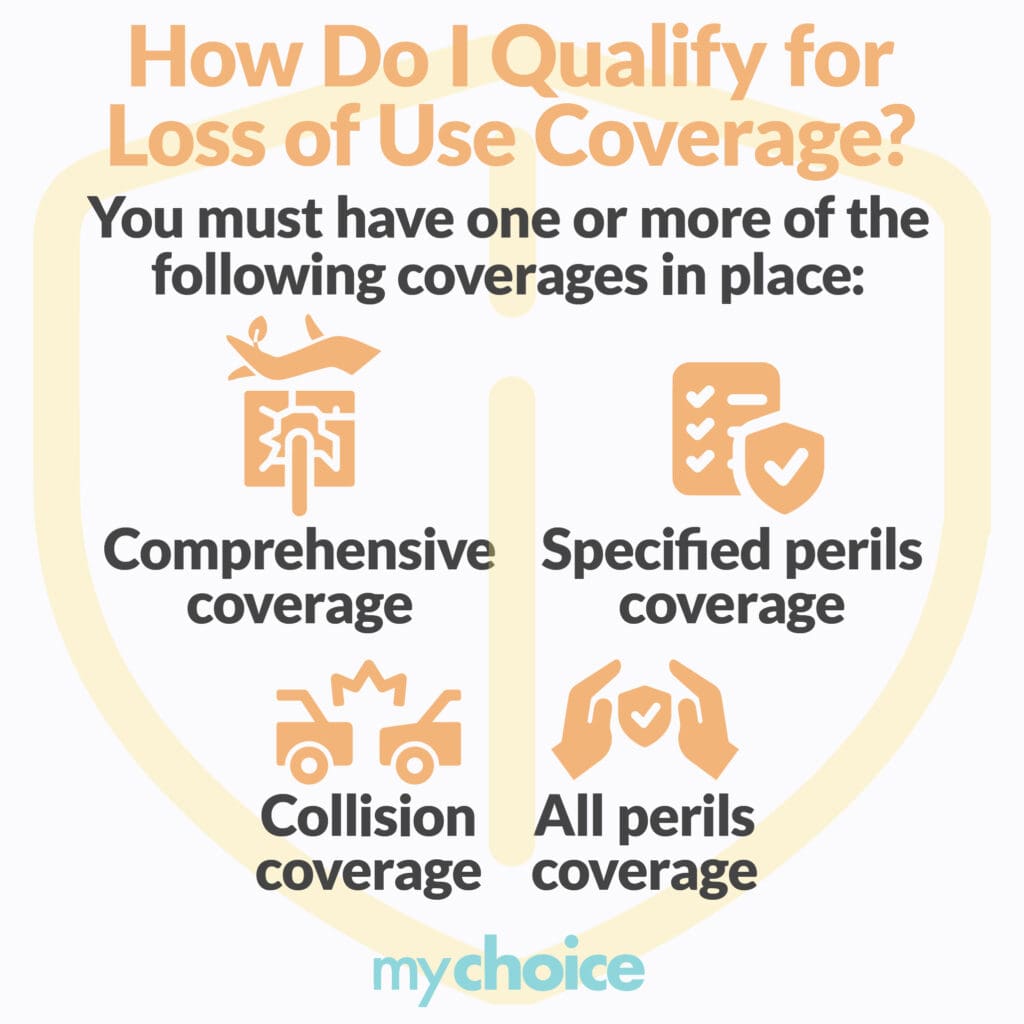When your car is lost or damaged to the point of needing repairs or replacement, you may find yourself in need of an alternate mode of transportation. Whether it’s rental cars, taxis, or public transportation, paying for another way to get around can be expensive.
OPCF 20 solves this problem by covering your transport expenses while waiting for your car to be repaired or replaced. Read on to find out more about OPCF 20, its conditions and limitations, and why you should add it to your car insurance policy.
Do I Qualify for OPCF 20?
In order to qualify for OPCF 20, you need to have at least one of the following physical damage coverages in your car insurance policy:

As long as you have one or more of these coverages in your auto insurance policy, you can choose to add OPCF 20 to your new or existing policy.
What Does OPCF 20 Cover?
Taking out an OPCF 20 endorsement covers any vehicle you drive, including ones that you don’t own, such as a rental or borrowed car. As long as you have OPCF 20 included in your auto insurance policy, you’ll have your alternative transportation costs covered by your insurer if and when your vehicle becomes inoperable due to damage. However, OPCF 20 does not cover the cost of damage to non-owned vehicles, which is covered by OPCF 27. This combination of add-ons gives you continued mobility and protection for a non-owned vehicle.
How Much Does OPCF 20 Cost?
Since OPCF 20 is an optional add-on to your existing auto insurance policy, there’s an extra cost that comes with it, usually adding $60 to $80 to your annual premium. Depending on your insurance broker or company, you might save some money by bundling OPCF 20 with your base car insurance policy or other endorsements.
What Are the Limitations of OPCF 20?
There are some conditions that OPCF 20 sets that you should be aware of. Since your insurer is reimbursing your transportation expenses, you will need to cover those expenses first before claiming the reimbursement. Your insurer will not advance you money for alternative transportation.
OPCF 20 only covers your alternative transport expenses if your car is damaged by a peril you’re insured against. You will not get the reimbursement if, for example, your car is damaged by a falling tree branch but your policy only has collision coverage. There is also a maximum amount stipulated in the form that your insurance company will pay out per day or per occurrence.
When renting a replacement vehicle, OPCF 20 only covers the cost of renting it from the rental company. It does not cover the cost of gas or other additional expenses related to renting a vehicle, such as non-owner car insurance, so you’ll need to cover those costs out-of-pocket.
Mechanics of OPCF 20 Explained
When your OPCF 20 endorsement activates, your insurer will reimburse you for the cost of alternative transportation from the time that your vehicle is rendered inoperable until your vehicle is repaired or replaced. In the case of a loss of use from theft, OPCF 20 will cover your expenses from 12:01 AM of the day after you report it stolen to the insurance company or the police. The coverage period of OPCF 20 lasts until your car is repaired or replaced, the coverage limit is reached, or your insurer offers you a total loss settlement.
Why Do I Need OPCF 20?
Your auto insurance policy will cover vehicle repairs and even replacement if your car is damaged or lost in an accident, theft, or other unfortunate event. Car repairs and replacement can take a bit of time, and you’ll need a way to get around while waiting for your vehicle to be available. OPCF 20 will ensure that you have a budget for alternative transportation methods to get you where you need to go.
If your daily routine relies on having a vehicle for your everyday commute, adding on OPCF 20 will give you security and peace of mind, knowing that if anything were to happen to your car, you would still be able to use a rental vehicle or other means of transportation to fulfill your daily needs.
How to Review Your Endorsements
There are a variety of endorsements you can add to your car insurance policy. In addition to OPCF 20, you can add other policy change forms like OPCF 27 and OPCF 43. If you’re unsure which endorsements your policy has or just want to review them, you can find the specific endorsements in the following places:
- On the declaration page of your auto insurance policy.
- On the coverage form.
- On the cover letter of your policy signed by your insurance representative.
OPCF 20 Equivalents in Other Provinces
If you live in a province other than Ontario, you can still take out a transportation replacement endorsement on your insurance policy. The specific name of the policy change form varies across provinces and is called the QEF 20 in Quebec, and the SEF 20 in Alberta and Atlantic Canada.
Other than the name, there may be minute differences between regions. Consult your insurance agent or company to understand the specifics and nuances of the provincial variants of OPCF 20, in order to make an informed decision based on your personal circumstances.
Key Advice from MyChoice
- You need to have at least one of the specified coverages on your insurance policy to be eligible for OPCF 20.
- OPCF 20 does not cover your transportation expenses if your vehicle is damaged or lost through perils your insurance policy doesn’t cover you against.
- While OPCF 20 covers your initial rental fee, you will need to pay for gas and other related expenses out of your own pocket.








